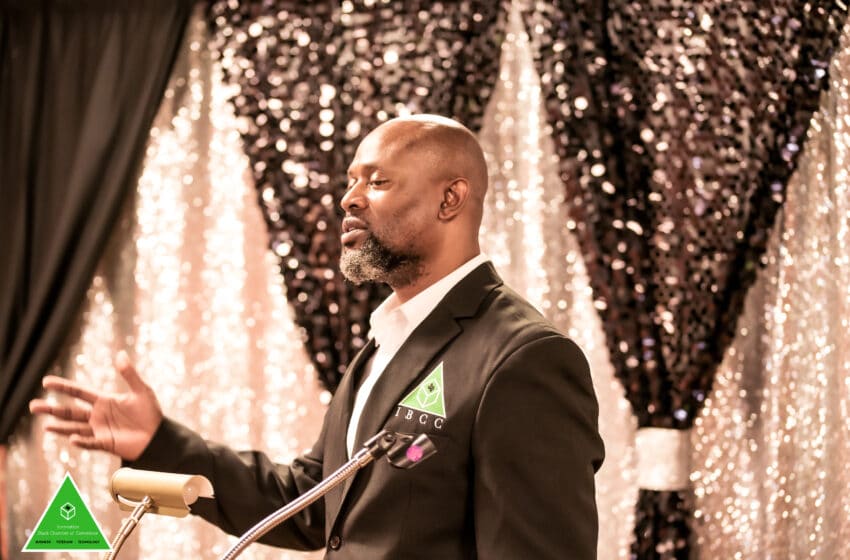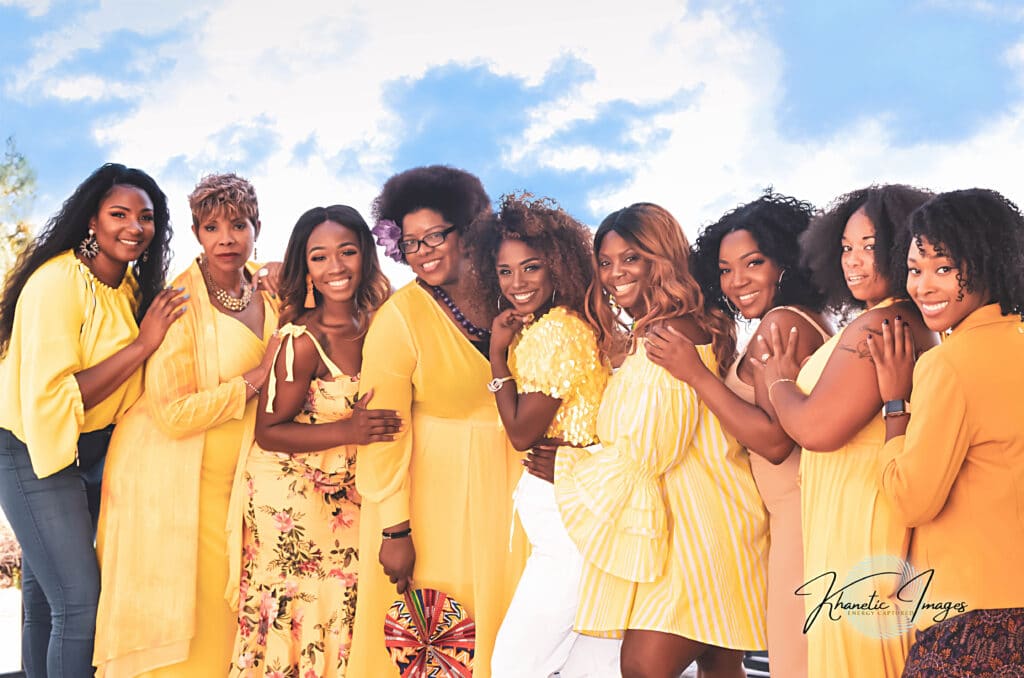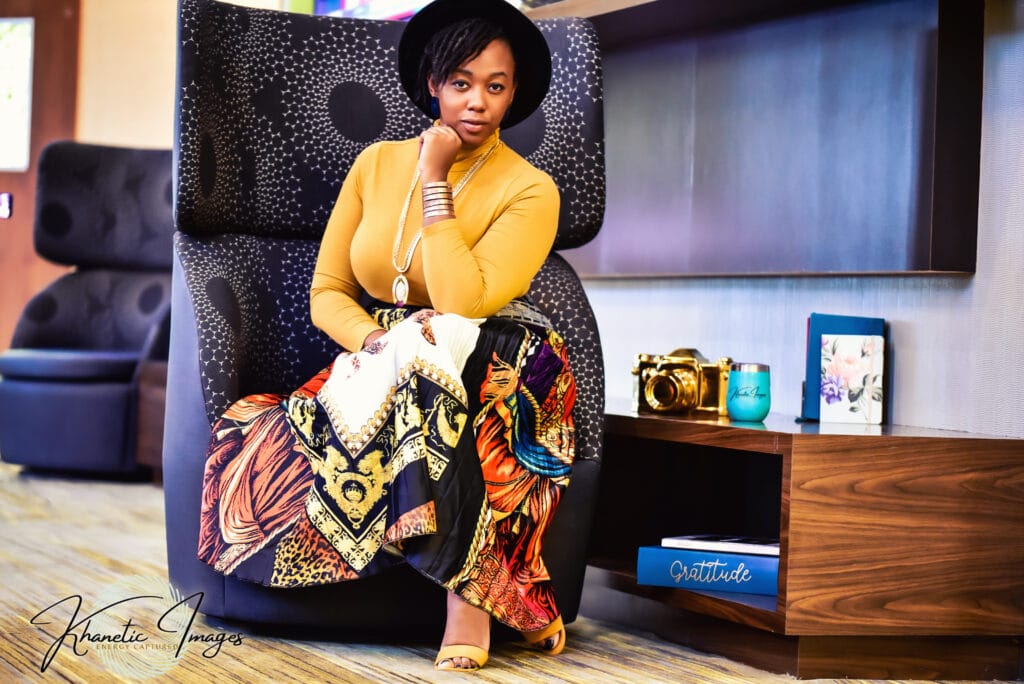The Capital Connector

A Conversation with Ronnie Russell, CEO of Killeen’s Innovation Black Chamber of Commerce
Ronnie Russell has many goals. Near the top of his list is getting people to think more positively about the city of Killeen.
Russell, a native of Fayetteville, North Carolina, served in the US Army for more than 15 years, most recently as a mortar platoon sergeant. Now he’s based in Killeen, near the nation’s second-largest Army base, Fort Hood. There, he’s working hard to empower the local Black business community and—as he puts it—“socially reengineer” perceptions of the city.
“There are a lot of great things happening in the city of Killeen,” says Russell. “I feel like that’s overlooked a lot.”
Right now, Russell’s primary tool for showing the opportunities of Killeen is the Innovation Black Chamber of Commerce, where he currently serves as CEO. He founded the chamber in February of 2020, with no inkling that a global pandemic would soon unfold. Yet nearly two years on, the chamber is going strong at almost 200 members.
Russell had the idea for the Innovation Black Chamber of Commerce when he noticed that Killeen fell right in the middle of two large Black chambers—in Austin and Dallas—but had no chamber representation of its own. This was despite its population being over 40 percent Black and being home to hundreds of Black entrepreneurs and Black-owned businesses.
“I saw that there was a need, so I created the chamber to provide access to resources and capital, as well as to create a body of people who want to network with each other,” says Russell.
The chamber is far from Russell’s first entrepreneurial endeavor. While he was stationed in South Korea in the early 2000s, he noted that soldiers didn’t have much help figuring out how to get around the peninsula. When he revisited South Korea 15 years later on a rotation, he was surprised to find that the situation wasn’t much improved. So, working through all the proper military channels, he created an app called Penn Around that provided bus schedules and other resources for English-speaking soldiers. The app was a success, being downloaded by nearly a third of all military personnel stationed in South Korea.
After creating another app, Texas Corral, Russell was onto his next venture: the Texas Black Pages. He now has over 17,000 businesses registered in directory, allowing users to easily find Black-owned businesses in all 254 counties of Texas.
Now, with the Innovation Black Chamber of Commerce as his primary project, Russell is focused on shining a positive light on Killeen and connecting Black entrepreneurs to vital resources—perhaps most importantly, capital.
I don’t care how long you’ve been in business, you will always need a mentor. Even Bill Gates has a mentor.
As Russell notes in the conversation that follows, connecting Black business owners with capital means more than just showing them how to find money. That’s important, of course, particularly given the systemic obstacles many Black entrepreneurs face in funding. But Russell is clear that intellectual and human capital are critical too—and that Black entrepreneurs often don’t have easy access to these either. It’s a gap his organization is working daily to bridge.
When an entrepreneur or business joins the Innovation Black Chamber of Commerce, what do they get from being part of the organization?
What they gain is access to capital. A lot of times, people are looking for financial capital. We can help them with that for sure. But oftentimes we forget about the human capital and intellectual capital side. Once a business has access to human and intellectual capital, the financial capital is often a byproduct. You have to start with a whole sustainable package that makes your business strong.
All commerce starts with information and education. I could give you a lump of money, or I could personally teach you how to start a company, give you the necessary tools, help you maneuver and develop, show you how to acquire your first customers. If I give you all that intellectual capital first, you’re going to create commerce.
We at the chamber also want to help people communicate and commune with other people who understand the nature of entrepreneurship and running a business. Many of our members started businesses to create a legacy for their family or to have complete control over their and their family’s future. People who have those similar motivations can help and support each other.
What are some of the challenges that Black-owned businesses and Black entrepreneurs face in Texas?
Access to capital—those things we were just talking about. That includes intellectual capital. Information is money. A lot of times, Black business owners aren’t in the rooms where that knowledge is gained, which can put us at a huge deficit.
Why don’t we receive that same information as other ethnic groups? Sometimes it’s because we don’t put ourselves in those rooms. Other times, there are systemic, external factors that take place. Either way, the chamber is intent on getting business owners that information that’s going to help them create financial capital.

How does the chamber engage with the military community and Fort Hood?
Fostering the entrepreneurial spirit of veterans is huge with us. We also have a goal to see more businesses in Killen get certified as veteran-owned.
Another thing we do is connect with the new soldiers when they come into Fort Hood every Thursday. I know what it’s like to be a soldier and not have a connection to the community outside the post. It can feel like a bubble, but we try to burst that bubble when we get the opportunity.
There’s roughly 180 soldiers that come through in processing every Thursday. We meet with them along with 15 or so other organizations. Many of these soldiers are trying to figure out what the community offers them. We talk to them, let them know how we can be of service. They’ll come in married, they’ll come in single, they’ll come in divorced. They’ll come in confused. They’ll come in happy, they’ll come in sad. But there’s always a resource there for them no matter where they’re at. It’s like students coming down the hallway on the first day of school. We open our hearts and our eyes and our minds and our mouths in order to find out what they need.
Forty-one percent of Black-owned businesses in this country shut down because of COVID.
How did COVID affect the chamber’s work? I assume you saw a lot of people struggling.
Right. But it also helped some businesses because it made them sit down and gain intellectual capital. It made people look at where their weaknesses were and how they could become stronger in those areas. It also taught people how to transition their business to meet new circumstances. So they weren’t just pivoting—they were also transitioning from being an average business owner to a great business owner.
A lot of the businesses that shut down didn’t have access to financial capital, but a lot of them also didn’t have the intellectual capital—they didn’t have the proper paperwork and accounting in place to get PPP [Paycheck Protection Program] loans or EIDL [Economic Injury Disaster Loans]. Again, in some cases that could be a self-inflicted wound. In other cases it could’ve been a systematic wound or a result of bias.
COVID has been a blessing because I’m able to help more people from a virtual perspective. And now, I’m starting to be able to help more people from a physical perspective too.
Killeen is growing along with the rest of Texas. Do you see all the growth as positive for the most part?
I think it’s a very positive thing. Growth begets growth. When you have a community that’s growing, the people look at it and ask, “What is my role in this city as it grows?” They start thinking about how they can grow along with the area. It creates a feeling of positivity. It helps everyone rise. It also gives businesses a lot more access to human capital.
You served in the US Army for over 15 years. Do you find that today you still use lessons learned in the military as a leader at the chamber and in the community?
A whole lot of them. The Army gives you the tools, but it’s what you do with the tools that make it work. The army has seven values that I still utilize today: loyalty, duty, respect, selfless service, honor, integrity, and personal courage. When you break that down, it spells LDRSHIP. If you are utilizing those seven values, your leadership is going to be even better. People follow the person who has the willingness and the ability to go above and beyond.
Being resilient in uniform has definitely translated in being resilient out of uniform. When you face challenges, even if you do go out of business, military training shows you that there are a lot of courses of action that you can still develop. Once you’re in the storm, you know how to weather it. You can picture what the outcome looks like and move forward.
If you were talking to a young person who wanted to become an entrepreneur or CEO, what’s the number-one thing you’d tell them?
To figure out what their why is. Not everybody has the same why. You’ve got people who want to start business for the money, but if that’s your whole why, if you’re not solving a problem, then you might not succeed. So, focus on your why and never lose sight of it, because that’s going to be what keeps you grounded. If your why is strong, your vision is going to be strong and you’re going to make money.
Being resilient in uniform has definitely translated in being resilient out of uniform.
Have you had important mentors in your journey? Who are they?
I’ve had plenty. I don’t care how long you’ve been in business, you will always need a mentor. Even Bill Gates has a mentor. My first mentors were my parents, and they still are. Along the way, in uniform, I had great platoon sergeants, a great sergeant major, and great lieutenant colonels who allowed me to be great and supported me through that journey.

Last question. Can you tell us about your team at the IBCC?
We have a great team that’s committed to selfless service. The chamber is a service organization at the end of the day. My vice president, Ms. Secret Odom—she’s never been in the military, but she’s like a little drill sergeant. She makes sure things get done. Our events coordinator, Ms. Shirley LaTour, has owned the events and taken responsibility for them. The events really move the trains with sponsorships; they allow us to roll a lot further and faster.
That’s just a couple examples of the people who give their time and efforts to the chamber. No one here looks at anything as, “Oh, that’s not my responsibility.” You’ve got to own it, even when you messed up. Each of us owns our areas of responsibility. Right now, we’re one of the most active organizations here in Killeen, so we feel we need to take ownership together as well, for our community. We want to display personal courage and integrity, because that will show what change looks like, in Killeen and beyond.






The Tesla Tipping Point
May 12, 2022